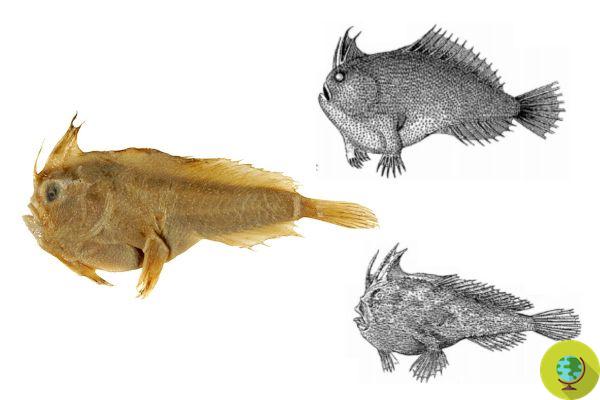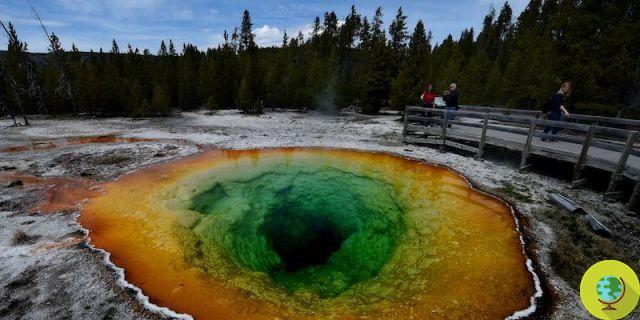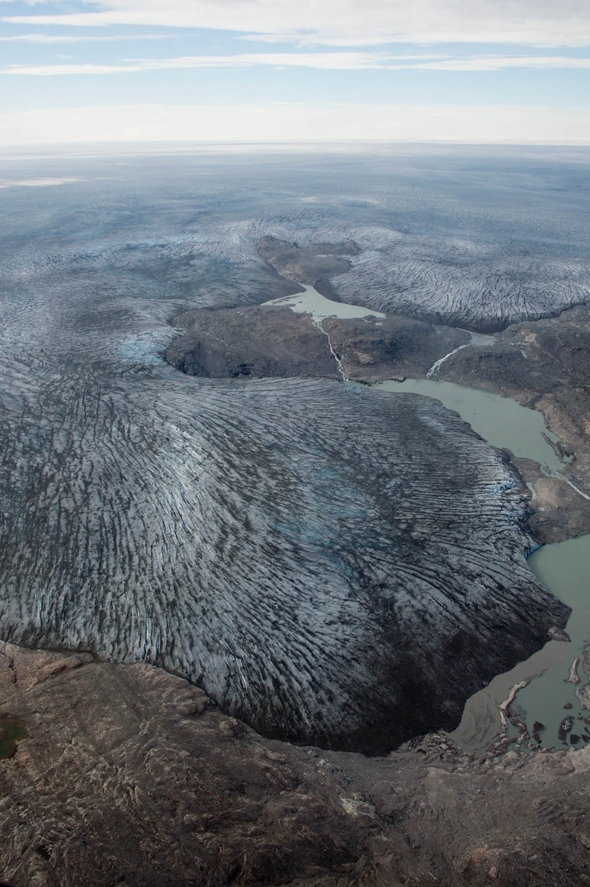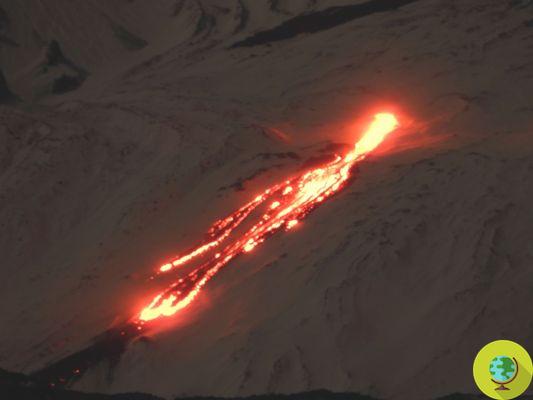
Researchers are able to detect and measure sounds they could not previously record, while many animal species thrive in silence
He is about to end up run over, his mother saves himThe whole world is silent. This is a great gift for scientists and seismologists, who are hearing the sounds of the Earth like never before
The Covid-19 pandemic is turning the natural world upside down, because the lockdown and social distancing have produced numerous effects on air, sea and land. We often show you images of nature advancing as man retreats. With fewer cars and deserted streets, even researchers are able to detect and measure what was being clouded by smog and noise. Trains, planes, no school buses: the world is on hiatus and if this is a real nightmare for many, for others it is the right time to go back to doing research.
Seismologist Paula Koelemeijer told The Atlantic that since the UK announced stricter rules on social distancing, her seismometer has seen a sharp decline in vibrations produced by human activity.
“Normally we cannot perceive an earthquake magnitude 5.5 on the other side of the world, because there is usually too much noise. Now, with less, our instrument is able to capture it during the day, ”says the seismologist.
A slowdown in our life, all seismologists and not only Koelemeijer have noticed. The trend started with Thomas Lecocq of the Royal Observatory in Brussels. Seismic stations are usually located well outside metropolitan areas, away from vibrations that could obscure subtle tremors within the Earth, but the Brussels station was established over a century ago, before the city developed. around it.
Lecocq found that when it snows, the anthropogenic seismic activity decreases and on the day of road traffic, it increases. The seismologist checked the seismic data the day before Belgium began the nationwide lockdown and then the following morning. The drop in activity, he said, was "immediate". His approach was followed by scientists from the United States, France and New Zealand who claim that their instruments are capable of picking up more precise sounds over long distances.
A similar change is also seen in the air. Satellites observing Earth have detected a significant reduction in the concentration of a common air pollutant, nitrogen dioxide, which enters the atmosphere through emissions from cars, trucks, buses, and power plants. The decline, observed in China and Europe, coincided with severe social distancing measures and restrictions. Air pollution can seriously harm human health, and the World Health Organization estimates that conditions resulting from exposure to environmental pollution, including stroke, heart disease and respiratory disease, kill about 4,2 million of people per year.
According to an analysis by Marshall Burke, a professor in Stanford's earth system science department, a reduction linked to the pandemic likely saved the lives of 4 children and 73 elderly people in China. However, the scientist states that they are temporary benefits. "We are not solving climate change by having a global pandemic," says Joseph Majkut, director of climate policy at the Niskanen Center in Washington.
With so many people staying at home - and public transport agencies cut service as a result - there is significantly less noise from cars, buses, trains and other means of transport. Erica Walker, a public health researcher at Boston University, took a decibel meter with her on her socially distant walks and was blown away by the measurements. “It's much quieter,” she told me.
Then there is the aspect of significantly reduced noise pollution. With less traffic, locals can hear sounds that were previously inaudible, such as birdsong or even the rustle of trees. And the oceans are probably calmer too. Michelle Fournet, a Cornell marine ecologist who studies acoustic environments, hopes to place underwater microphones off the coasts of Alaska and Florida, where she has studied humpback whales and other marine forms, to investigate how the waters have changed in the absence of noise from cruise ships.
“Just having no cruise ships reduces the amount of global ocean noise almost instantly. We are experiencing an unprecedented hiatus, ”Fournet explained.
As we know, environmental noise from ships and other types of marine traffic has been amply shown to increase the levels of stress hormones in marine creatures, which can affect the reproductive process.
Erica Walker, a public health researcher at Boston University, took a decibel meter with her on her walks and was blown away by the measurements. Before the coronavirus pandemic, the acoustic environment in Kenmore Square, a busy intersection near campus, was usually around 90 decibels at rush hour. During the pandemic, just under 68 decibels. At some points in the Fenway Park area, where Walker has studied noise pollution for several years through the Noise and the City program, her latest data show reductions close to 30 decibels. “It's an incredibly huge difference,” Walker said. Nature is taking a breath when we all hold ours.
Fonti: The Atlantic/ Reuters
Read also:
- Reggio Calabria, dolphins a few meters from the shore: their dance enchants (from the balcony) the Strait
- The human being steps aside, nature takes back its spaces and returns to breathe
- The outskirts of London are deserted: deer conquer streets and gardens near the houses
- The hares film the parks of a deserted Milan: the beautiful images


























